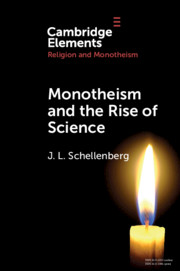Element contents
Monotheism and the Rise of Science
Published online by Cambridge University Press: 20 November 2020
Summary
Information
- Type
- Element
- Information
- Online ISBN: 9781108889094Publisher: Cambridge University PressPrint publication: 17 December 2020
Bibliography
Bibliography
Accessibility standard: Unknown
Why this information is here
This section outlines the accessibility features of this content - including support for screen readers, full keyboard navigation and high-contrast display options. This may not be relevant for you.Accessibility Information
- 12
- Cited by
